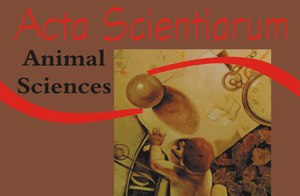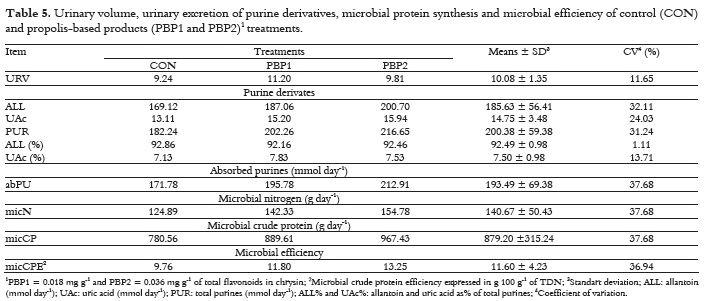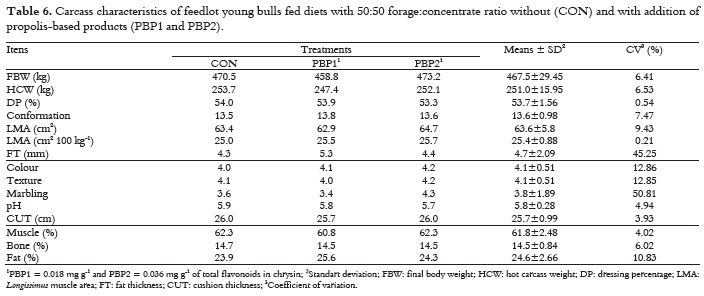The objective was to evaluate the effect of propolis-based products (PBP) on performance, digestibility, microbial production and carcass characteristics of feedlot young bulls. Twenty-seven crossbred young bulls were used, with 353 ± 28 kg of body weight in a completely randomized experimental design, divided in three treatments: two diets with PBP with different dosages (PBP1= 0.018 mg g-1 and PBP2= 0.036 mg g-1 of total flavonoids in chrysin) and control diet (CON). To determine total digestibility, the indigestible dry matter was used as an internal marker, while microbial production was estimated from purine derivatives in urine, collected by the spot method. The evaluated carcass characteristics were: hot carcass weight, dressing percentage, conformation, Longissimus muscle area, fat thickness, colour, texture, marbling, pH, cushion thickness and percentages of muscle, bone and fat. The studied variables were subjected to analysis of variance with 5% probability. The addition of propolis had no effect on DM and nutrients digestibility (except the ADF, which was higher) or efficiency of microbial synthesis. Carcass characteristics were not affected by the experimental treatments. The PBP in the used dosages should be reviewed and higher dosages should be tested.
additive; flavonoids; meat quality; microbial efficiency; ruminant






